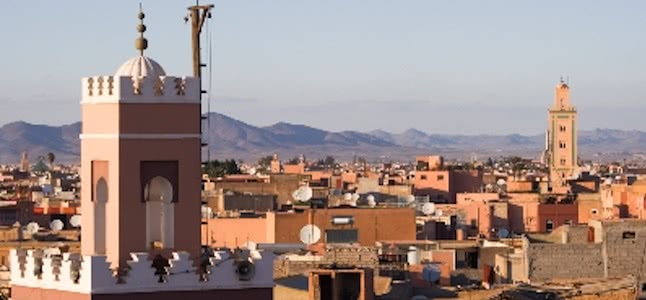Marrakech isn’t the capital of Morocco and nor is it the country’s largest city, but with a strong tourism push thanks to the advocacy of the King of Morocco, Mohammed VI, this city has won out as one of the country’s most important cultural centres.
There has always been much appeal in visiting the Red City thanks to its intriguing architecture, but with tourism now a greater focus of monarchy there are more and more Westerners knocking on the city’s doors.
While there is a metropolis with many cultural cornerstones to experience here there is also a music scene that tourists passively take in.
That is to say that Marrakech’s music scene doesn’t resemble that of Austin or London. You won’t find big name bands making their way through an international tour here nor are you likely to find bars or venues dedicated to a singular music genre.
Instead your ears will more than likely run into the sounds of Morocco on the city streets and in restaurants.
That doesn’t mean it’ll sound any less exciting or interesting. What you’ll hear is something traditional and exotic.
The sonic textures of Berber music from one of the major ethnic groups in Morocco and Chaabi, the popular music cultivated from Moroccan folk music is the music that dominates the streets.
Love The Beatles?
Get the latest The Beatles news, features, updates and giveaways straight to your inbox Learn more
But if you’re interested in moving beyond the tourism centric experience of Marrakech you have two main choices.
The first is two involve yourself in the growing number of dance clubs opening up in the city, many of which are inhabited by rich jet setters. Some are luxurious, others are home to the country’s best DJ talent.
But an experience like this only lasts so long, which is why we recommend you check out Marrakchi Records, one of the only labels fostering young emerging talent in the city.
Here you can sample some Marrakech talent and find out their next available live dates in the city.
Otherwise the traditional street music of Marrakech is nothing to be frowned upon. While the contemporary music scene of this city is still finding its voice, what you’ll find here now is something refreshingly disconnected and unique as far as music cities go.
Shop
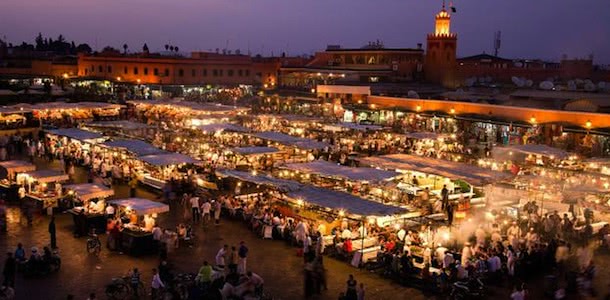
If you’ve found a record store in Marrakech than congratulations because many before you – including us – have tried and failed. Even CD shops are rare with the piracy epidemic plaguing the country in a way that would make Western Record Companies yelp and run for cover. With inadequate anti-piracy laws there are several copied CDs for sale on the streets of Marrakech that could be worth checking out.
That is to say you won’t find a rare Beatles release or Stones Bsides here, but you will be able to buy some cheap local music to give you an idea of just how the music of Marrakech sounds.
To find these CD stalls it’s best you make your way to Jmaa el Fna Square, which discussed in more detail below in the ‘See’ section. This is the most common part of the city to find recorded Moroccan music.
Listen
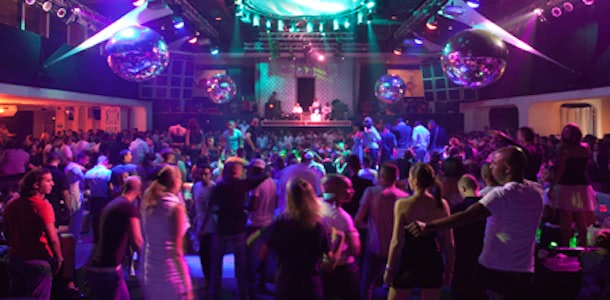
Pacha, Complexe Pacha Marrakech, Blvd Mohammed VI, Zone Aguedal, Hivernage
Marrakech has tried to establish itself as a club destination for years now and while they may be light years away from reaching Ibiza heights Pacha Ibiza does its best to replicate the famous party destination. As Africa’s biggest club the three thousand capacity is rarely reached on a week day with the weekend being your best bet to see Pacha at its thriving best. If you’re an early arriver you may just want to take a dip in the pool before the crowd arrives.
Palais Chahramane, 6 rue Sidi Bouchouka
If you’re part of tour group or just making your way through the Moroccan city by yourself it’s highly likely that you’ll chance upon this establishment. It’s a tourist experience of Moroccan food and music with traditional culture heightened to give the experience an authentic appeal. Upon entrance you’ll probably be greeted by the resident Atlas Berber band, but if you don’t the Andalusian or Gnaoua quartet will surely play for you tableside while you indulge in a six course meal.
Kechmara, 3 Rue de La Liberté
Make your way through the door and you’ll instantly notice this bar’s hipster crowd making conversation with the alternative music seeping from the sound system as the Moroccan art defines its walls. Stay for a cocktail or three past sunset and you’ll get to witness Marrakech’s most promising DJs and musicians doing their thing.
See
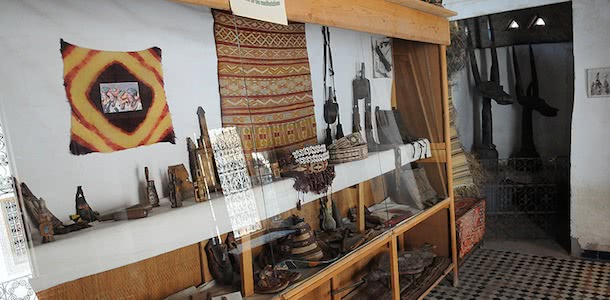
Bert Flint Museum, 8 Rue de la Bahia
This traditional late 19th century Moroccan house named, Maison Tiskiwin, was first set up as a museum in 1950 by Dutch anthropologist and art historian Bert Flint. Flint who still lives in the house has collected a vast and diverse collection of Moroccan arts, carpets, artefacts, sculptures and most importantly musical instruments. The instruments here provide a snapshot into the tools that make the Moroccan music so memorable. At 15Dh for entry the museum is open between 10am and 12.30pm and 3.30pm and 6pm.
Jmaa el Fna Square
Listed as a UNESCO heritage site the square is a congregation of Arabic storytellers, stall sellers, orange juice stalls, musicians and snake charmers. While most of the square’s performers can be seen at night you may find a few braving the Moroccan sun. It’s expected that you pay a small tip of anywhere between 5 and 10Dh. This area proudly displays the best of Moroccan music and culture that you’re likely to find on the streets of Marrakech.
Morrocan Acts You Should Check Out
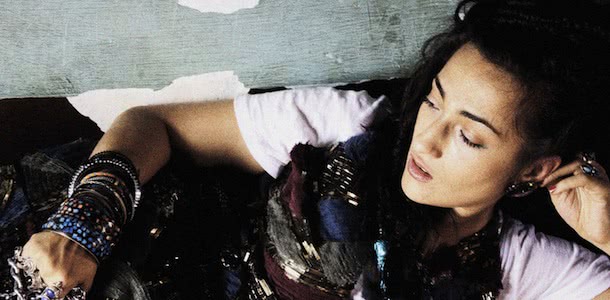
Hindi Zahra – Facebook
This Frano-Moroccon singer released her debut album, Handmade, in 2010 and achieved chart success in several European countries. Singing largely in English but also in Berber languages the songstress is frequently compared to the likes of Pattie Smith and Norah Jones.
Mohamed Rouicha – Facebook
Born Mohamed Houari this musician became famous as Mohamed Rouicha through his folk songs. Detailing stories of love and the everyday battles of Moroccan life the artist made a huge impact over the course of his lifetime. Passing away at the age of 62 in 2012 he is still fondly remembered and celebrated throughout Morocco.
Don Bigg – Facebook
An active voice in Morocco’s music scene since 1997 Bigg has become known through his aggressive rap style. His lyrics firmly place the spotlight on the country’s problems as evident by the titles of his two full-length releases 2006’s Moroccans ‘Till Death and 2010’s Black And White.

































